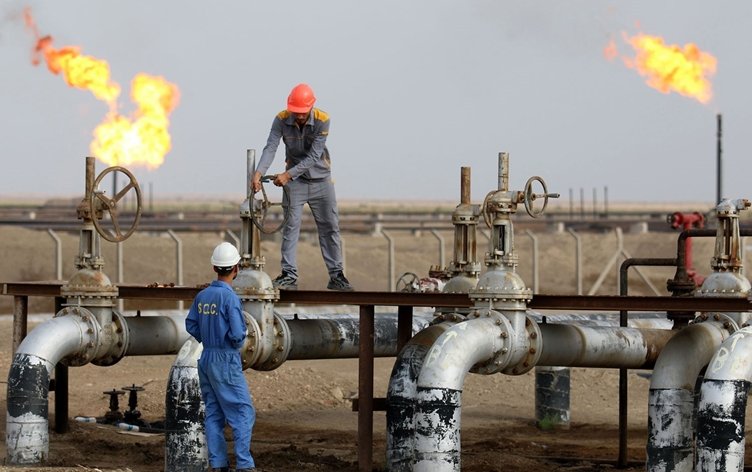Iraq generated over $7 billion in oil revenue rises in August, the Ministry of Oil reported. Oil exports remain Iraq’s main source of income, funding government operations, public projects, and civil servant salaries. Baghdad shipped more than 104.8 million barrels of crude, averaging 3.4 million barrels per day. The average price per barrel reached $67.7, bringing total revenue to around $7.16 billion.
The federal government emphasized that Iraq’s oil revenue plays a critical role in supporting public services and maintaining economic stability. Meanwhile, the Kurdistan Region resumed its oil exports after a two-year suspension. Baghdad, Erbil, and international oil companies reached an interim agreement to restart Kurdish shipments. Under the deal, the Kurdistan Regional Government (KRG) delivers 190,000 barrels per day to Iraq’s State Oil Marketing Organization (SOMO), while an additional 50,000 barrels per day remain under Erbil’s management for local consumption.
Oil prices declined slightly after Kurdish exports resumed. The drop coincided with OPEC+ plans for another production increase in November. Analysts explained that these changes may impact Iraq’s short-term revenue but will strengthen long-term market participation.
The Ministry of Oil highlighted that Iraq’s oil exports now demonstrate resilience and strategic cooperation. Coordinating with the KRG ensures that crude flows consistently while protecting Iraq’s share in global markets. Officials added that increased transparency, stronger collaboration, and clear management of exports will attract more investment and stabilize production levels.
Furthermore, Iraq’s oil sector supports broader economic growth by creating jobs, stimulating related industries, and reinforcing its role as a regional energy hub. With the resumption of Kurdish exports, Baghdad can better plan its budget and fund development projects. The coordination between the federal government and the KRG also signals political and economic stability to international investors.
Through these combined efforts, Iraq solidifies its position as a key player in regional and global energy markets. Iraq oil revenue rises continues to underpin its economy, promote investment, and ensure that both Baghdad and the Kurdistan Region benefit from sustainable crude exports.


